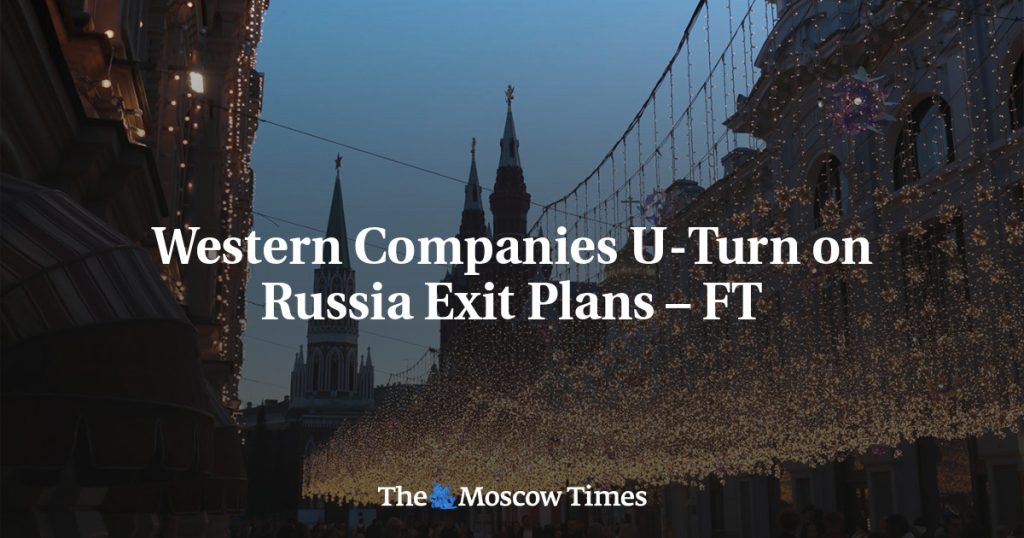Western companies are reconsidering their decision to exit Russia due to increasing costs imposed by the Kremlin, challenges in finding suitable buyers, and a resurgence in consumer activity. While the number of foreign companies remaining in Russia has increased, some are openly discussing their plans to stay, including Nestle, Unilever, Philip Morris, and Mondelez. These companies believe that investors are not concerned about the moral implications of doing business in Russia and are focused on protecting their brands from potential rivals.
Some companies have faced difficulties in exiting Russia, such as Avon Products, which declined offers to sell its Russian business, and Air Liquide, which did not receive approval from the Russian government to proceed with a sale. Reckitt, a UK consumer group, initially began the process of transferring ownership but has encountered obstacles along the way. The exit process has been complicated by the mandatory 50% discount on assets of businesses from “unfriendly” countries, a minimum 15% exit tax, and the requirement to find suitable Russian buyers who are not sanctioned by the West.
Danone and Carlsberg experienced challenges last year when their assets were seized after announcing their plans to exit Russia. Danone eventually sold at a discount, while Carlsberg remains in a legal battle with the Russian government. The combination of mandatory discounts, exit taxes, and the need for suitable Russian buyers has made it difficult for companies to exit the Russian market. Rising wages and recent nationalizations have also contributed to the challenges faced by Western businesses in Russia, further complicating the exit process.
Carnegie Russia Eurasia Center non-resident fellow Alexandra Prokopenko stated that corporate exits have been hindered by rising wages and a wave of nationalizations in Russia. This has made it challenging for Western companies to navigate the complexities of exiting the market, leading to delays and uncertainty. Another executive working with Western businesses in Russia echoed these sentiments, noting that European companies find themselves in a difficult position when trying to exit the market. The combination of political, economic, and logistical hurdles has made it increasingly challenging for companies to leave Russia.
Despite the challenges, some companies are still considering their options and evaluating the best course of action. Reckitt CEO Kris Licht mentioned that the company is exploring various options but recognizes the growing complexities involved in exiting the Russian market. Companies such as Nestle, Unilever, Philip Morris, and Mondelez remain committed to staying in Russia despite the obstacles they face. These companies are navigating the changing landscape and adjusting their strategies to adapt to the evolving situation in Russia, highlighting the importance of flexibility and resilience in the face of challenges.


